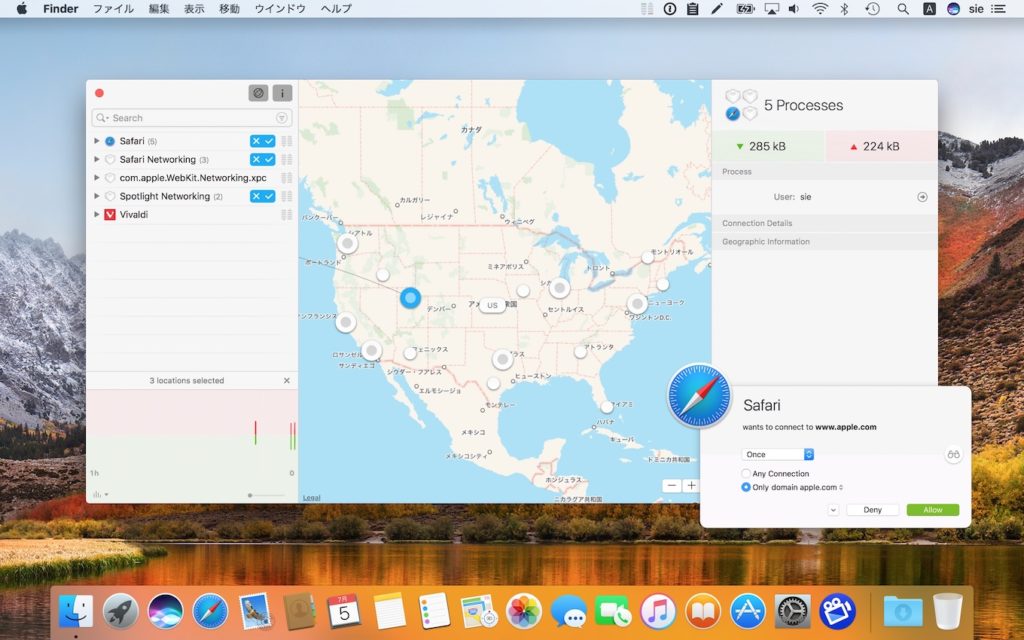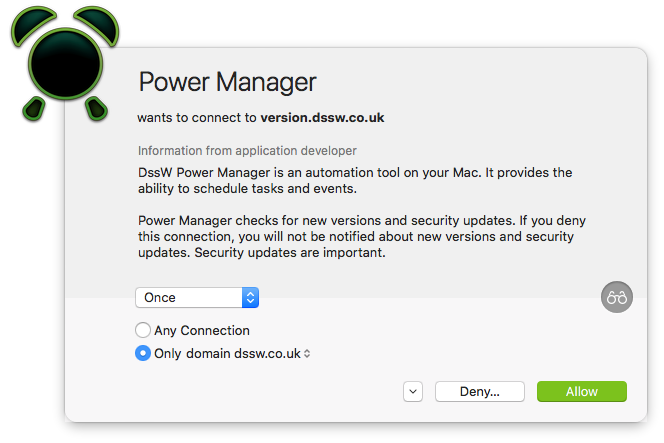Jul 17, 2018 I had the latest stable version of Little Snitch on my Mac with macOS High Sierra. After I installed macOS Mojave beta, LS broke. But I also experienced: - Almost unresponsive system, probably caused by Little Snitch using 99% CPU. Killing LS wasn't possible because of agents restarting LS. I installed Little Snitch a couple of years ago, and I thought it was a neat tool. However, after upgrading from 3.6 to 3.8, my computer was completely messed up. It wouldn't boot (it would chime, but not boot), and most regular boot commands (like shift, c, cmd-r and so on) didn't seem to take effect.
You probably came here because your Mac showed a message telling you that software from “Objective Development Software GmbH” (Little Snitch) loaded a system extension that will no longer be compatible with a future version of macOS and that you should contact us, the developer, to get more information. Well, here you are.
In order to be able to perform filtering of network traffic, Little Snitch 4 installs a kernel extension (the above mentioned “System Extension”) which is based on Apple’s “Network Kernel Extension” API (NKE).
This API will be deprecated in a future version of macOS and replaced with a new “NetworkExtension” API (NE). Despite their similarity in name, these two APIs work very differently, so the underpinnings of Little Snitch do require a substantial rework.

Will there be an updated version of Little Snitch that is compatible?
Yes. We are going to release an update of Little Snitch that will utilize the compatible replacement APIs.
Programming with the Dev C IDE 1 Introduction to the IDE Dev-C is a full-featured Integrated Development Environment (IDE) for the C/C programming language. As similar IDEs, it offers to the programmer a simple and unified tool to edit, compile, link, and debug programs. It also provides support for the management of the. How to use Dev-C Introduction Dev-C is a full-featured integrated development environment (IDE), which is able to create Windows or DOS-based C/C programs using the Mingw compiler system (included with the package), or the Cygwin compiler. You will return to Dev-C. If you want to execute your program again, from the 'Execute' menu, choose 'Run'. This program should work fine, but usually you will find logic errors in it that will need to be corrected by repeated analysis, editing, compiling, and testing. When you are finished, exit Dev-C from the File menu. /dev-c-user-manual-pdf.html. On this page you will API references, tutorials, online resources, documentation downloads, etc. About C/C and Win32 programming. However, if you're looking for documentation about an add-on library, you should look at the page of that library.
When will Little Snitch 4 become incompatible?
We expect the deprecation to become effective with the next major release of macOS. There’s no official release date from Apple, but based on the release schedule of recent years it will not be before this fall. Little Snitch 4 will then not be loaded by the operating system, but there will still be an option to allow the loading. [1]
What happens in the unlikely case that no updated version of Little Snitch is available at that time?

We do our best to have an updated version available right in time. But if you’re still concerned – keep in mind that there will be an option in macOS to allow running Little Snitch 4.
If I buy Little Snitch 4 now, will I get the update for free?
Little Snitch Stable Release Form
Yes. All licenses sold now include a free upgrade to Little Snitch 5. In addition, customers who purchased Little Snitch 4 within a one-year period prior to the final release of Little Snitch 5 (about this fall) will also get a free upgrade. And if you purchased Little Snitch 4 before that period, we will offer you an upgrade at a reduced price.
When will Little Snitch be updated to the new APIs?
Little Snitch Alternative
The replacement APIs that are currently available (NetworkExtension framework on macOS 10.15.4) are not yet completely sufficient to implement the full functionality of Little Snitch. But we are working closely with Apple to fill the remaining gaps and we expect that a beta of the next major macOS version (most likely available at the next WWDC) or even an upcoming version of 10.15 will provide what is missing. As soon as the APIs allow us, we will complete the transition of Little Snitch to the new NetworkExtension API. It’s our goal to provide a public beta in June 2020 and a stable version in October.
Little Snitch Stable Release Trailer
The relevant sentence in Apple’s statement to developers is: “Future OS releases will no longer load kernel extensions that use deprecated KPIs by default.” ↩︎